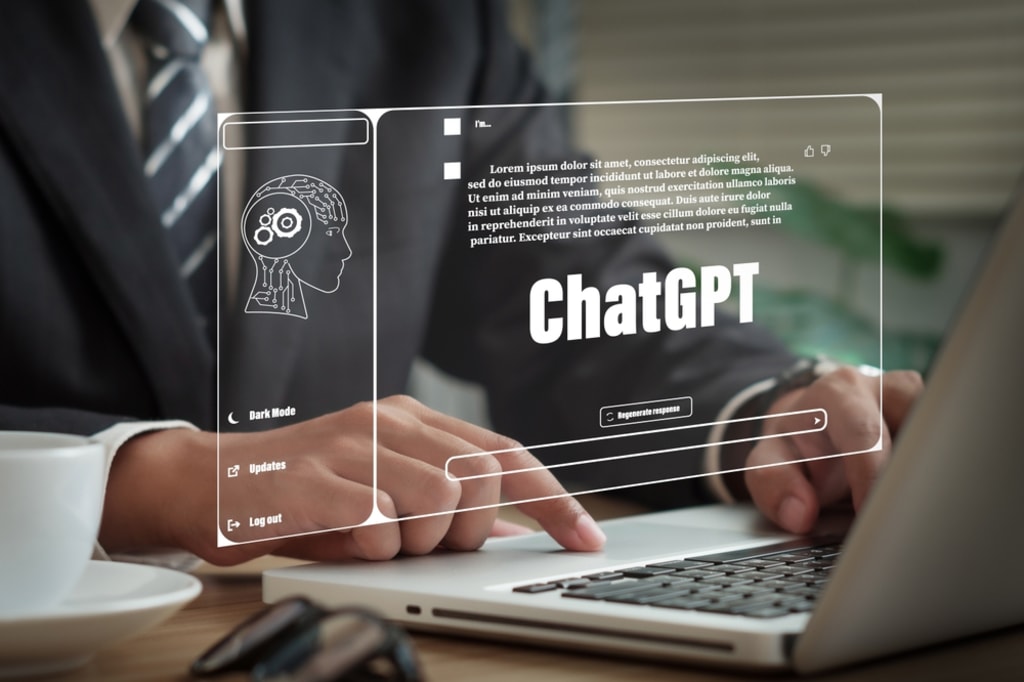The Prospects for Chat GPT
ChatGPT, a recent chatbot with artificial intelligence, is the talk of the internet. This is the most recent example of how an AI-based solution has improved business operations. There are many others, but generative visual AIs like DALLE•2 and bots that can comprehend natural language are growing swiftly as well.

At the end of 2022, Open AI made Chatbot GPT available to the general public, sparking a global uproar and having a significant impact on almost every industry. We wonder what the future holds for Chat GPT and comparable language models in light of the buzz that this ground-breaking technology has created.
Without a doubt, Chat GPT will change the tech industry. Are you optimistic about the future or worried that AI will replace us in our jobs? To find out more about what the future of Chat GPT potentially entail, keep reading our blog.
Chat GPT: What is it?
A highly developed AI system called ChatGPT is able to generate text responses that resemble human speech. It was trained on a sizable corpus of conversational text and uses the GPT (Generative Pre-trained Transformer) paradigm of operation. As a result, it can answer questions and deliver information in a way that is practically identical to a human discussion. The GPT-3.5 series is the most popular Chat GPT variation.
To comprehend and process language, this chatbot system employs deep learning and natural language processing (NLP). This makes it capable of carrying out a variety of duties, including customer support, making it significantly more sophisticated than conventional chatbots. The GPT-3 series offers a wide range of accessible tasks, domains, and applications, making it a fantastic tool for researchers and developers working on NLP projects.
The technology underlying Chat GPT is still being developed and improved, and OpenAI has already released multiple versions of GPT with progressively better speed and features. The Chat GPT AI system does not currently compare its findings to real-world data, but real-world data integration is something we may anticipate in the near future.
The system underlying Chat GPT
Generative Pre-training Transformer 3 or Chat GPT-3 is a state-of-the-art artificial intelligence system. It enables chatbots to interpret and produce natural language similar to that of humans with impressive accuracy and fluency. With 175 billion parameters and the potential to quickly process billions of words, it is the largest language model created to date.
A deep neural network has been pre-trained by OpenAI using a sizable text dataset, and its performance has been enhanced for specific tasks like creating text or answering queries. This is the underlying technology of Chat GPT-3. The network is built from a number of transformer blocks that analyze the input text and produce predictions. The network has self-attention mechanisms that allow it to evaluate the significance of various words and phrases in relation to one another and the conversation as a whole. Transformers also enable Chat GPT-3 to produce meaningful text even from minimal input.
A noteworthy development in NLP is Chat GPT-3, which use transformer-based architecture to analyze massive volumes of data concurrently and produce language that is more akin to what a human would understand. There are several applications for this technology, including text summarization software, chatbots, and machine translation tools. However, Chat GPT-3 is unable to access the internet and can only function using the information it has learned during training, which restricts its ability to acquire outside data.
The development of Chat GPT
To evaluate ChatGPT's potential for the future, it is essential to look at its past. Some of the most well-known figures from Silicon Valley have participated in Chat GPT in the past. The business that created Chat GPT, OpenAI, was launched as a nonprofit in 2015 by Elon Musk, Peter Thiel, and other tech investors. Its objective was to prevent the centralized control of AI by making its research and patents available to the general population. According to material posted on OpenAI's website on December 11, 2015, the business sought to develop AI "in the method that is most likely to benefit humanity as a whole."
Elon Musk resigned from the board in 2018 because of a conflict of interest with Tesla AI. In 2019, OpenAI changed its status from nonprofit to "capped-profit," allowing investors to make 100X potential profits while still supporting non-profit endeavors with the leftover funds. The two businesses formed a relationship in the same year that Microsoft spent $1 billion in OpenAI and licensed Microsoft as the sole recipient of its technology. Microsoft can now compete with Google's AI business, DeepMind, thanks to the partnership.
Sundar Pichai, the CEO of Google, has participated in numerous meetings since the most recent Chat GPT release to discuss Google's AI strategy in light of the threat posed by ChatGPT. In order to address the problem, the corporation also hired Larry Page and Sergey Brin, co-founders of Google. According to a report, Microsoft intended to employ ChatGPT to power Bing.
Microsoft said in January of this year that it planned to invest $10 billion in OpenAI over the following years, giving the tech giant a 75% profit share until it recoups the investment and a 49% ownership thereafter.
Future plans for Chat GPT
Chat GPT technology has gained traction in a number of businesses recently. Roles might be streamlined, and it could radically alter how people generate value. Concerns have been raised regarding how it will affect human jobs at the same time. Let's look at a few Chat GPT use cases, its potential, and whether or not you should be concerned.
Effects of the Chat GPT on Employment
I dared to question Chat GPT what the deployment of Chat GPT could possibly result in as far as human employment is concerned. I got the following response: The loss of jobs as a result of automation and AI-powered systems becoming more capable of completing tasks that previously required human labor is the worst conceivable result of Chat GPT implementation for human employment.As a result, there may be less demand for some occupations and a change in the knowledge and abilities needed for others. It's crucial to remember, though, that AI can also lead to the creation of new work prospects, and that its effects on employment will probably be complicated and multidimensional. In addition, proactive measures can be done to lessen any negative consequences, like offering workers training and education so they can pick up new skills and adjust to shifting employment markets.
Do you need to worry about your job?
Concerns about Chat GPT's potential to replace vocations like those of programmers, journalists, and creative writers have grown as AI has become more prevalent. Even if ChatGPT can produce reliable and logical responses, it is still far from becoming a job-killer. ChatGPT does, in reality, have its limits. The current output quality is less trustworthy in solving difficult problems because it contains a lot of inaccurate information.
We can still benefit from ChatGPT in a number of ways. For developing ideas and creating headlines, for instance, journalists and creative writers can use Chat GPT. It's crucial to remember that this technology cannot take the role of manual work, soft skills, or the development and maintenance of relationships. Chat GPT technology can be used to support tasks than than take their place.
It can give employees more time to focus on higher-value jobs that call for more creativity and problem-solving if it is accepted and used properly. Effective use of ChatGPT requires special expertise. Instead of being concerned about how it will affect our jobs, it is our responsibility to fully comprehend it and educate ourselves.
Conclusion
You might be reaching for a copy of Brave New World by Aldous Huxley or 1984 by George Orwell in light of all the discussion about the future of Chat GPT. It's crucial to keep in mind that technology can present both opportunities and challenges rather than living in a dystopian world where technology will eliminate all human occupations. While it might eliminate some professions, it might also open up intriguing employment options and generate new ones. If you liked this article, you might also be interested in reading our blog post about the future of NFT.
About the Creator
denver
i'm writer, journalist and a editorial translator,I have written several articles in different subjects, i hope you will like my articles






Comments
There are no comments for this story
Be the first to respond and start the conversation.